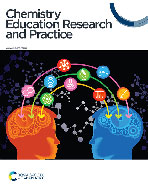Inoculating students against science-based manipulation strategies in social media: debunking the concept of ‘water with conductivity extract’
Abstract
Social media are a popular source of information for young people, serving the purposes of not only communication but also the creation and distribution of content as well as advertising. However, that content may contain science-related information that in many cases is not based on scientifically proven sources. Content creators and/or advertisers use a specific set of strategies to make their claims more credible, and to address the strategies connected to science aspects, we created a fake product called ‘HIQO – the water with conductivity extract’ and claimed that it improved the conductivity of the brain to make the drinker smarter. We established a fully fledged web presence and ordered specially labelled bottles that in fact contained only ordinary mineral water. When creating the Internet resources, we made sure to consider the major manipulation strategies known from the literature. The product was embedded in a three-hour teaching sequence and has been tested with a total of 106 students from three secondary schools in northern Germany. The module was evaluated using tasks to assess civic online reasoning; the evaluation took place using a rubric with three levels (beginning/emerging/mastery), with learners who participated in the teaching sequence before attempting the tasks reaching the higher levels significantly more often than did those in the control group, who were given only the tasks.


 Please wait while we load your content...
Please wait while we load your content...